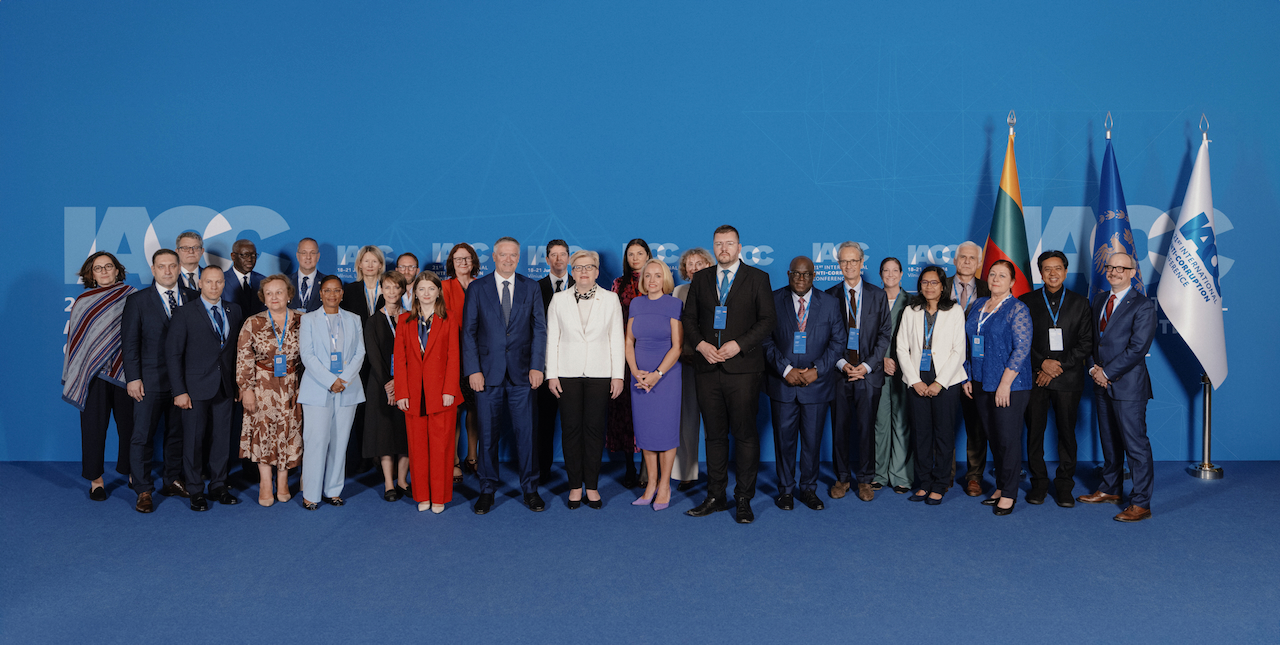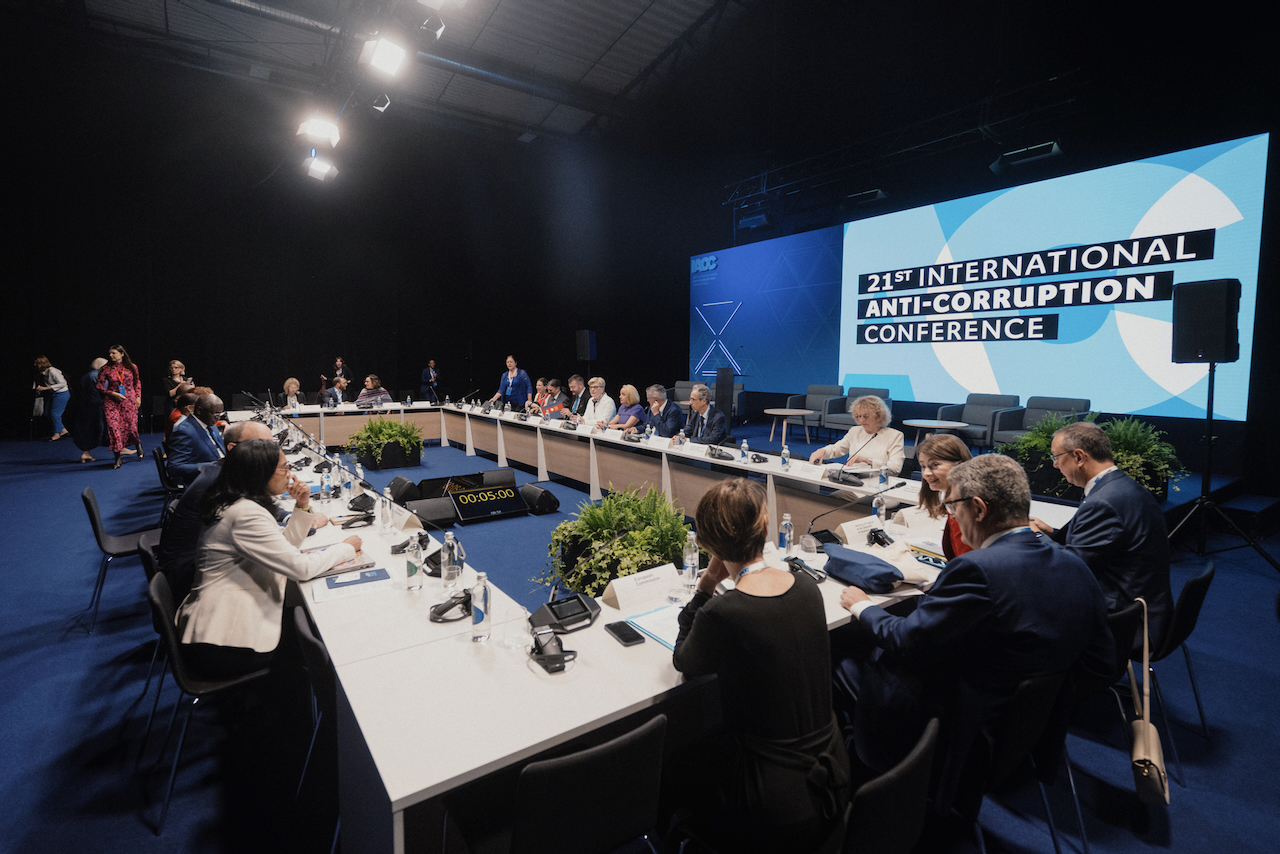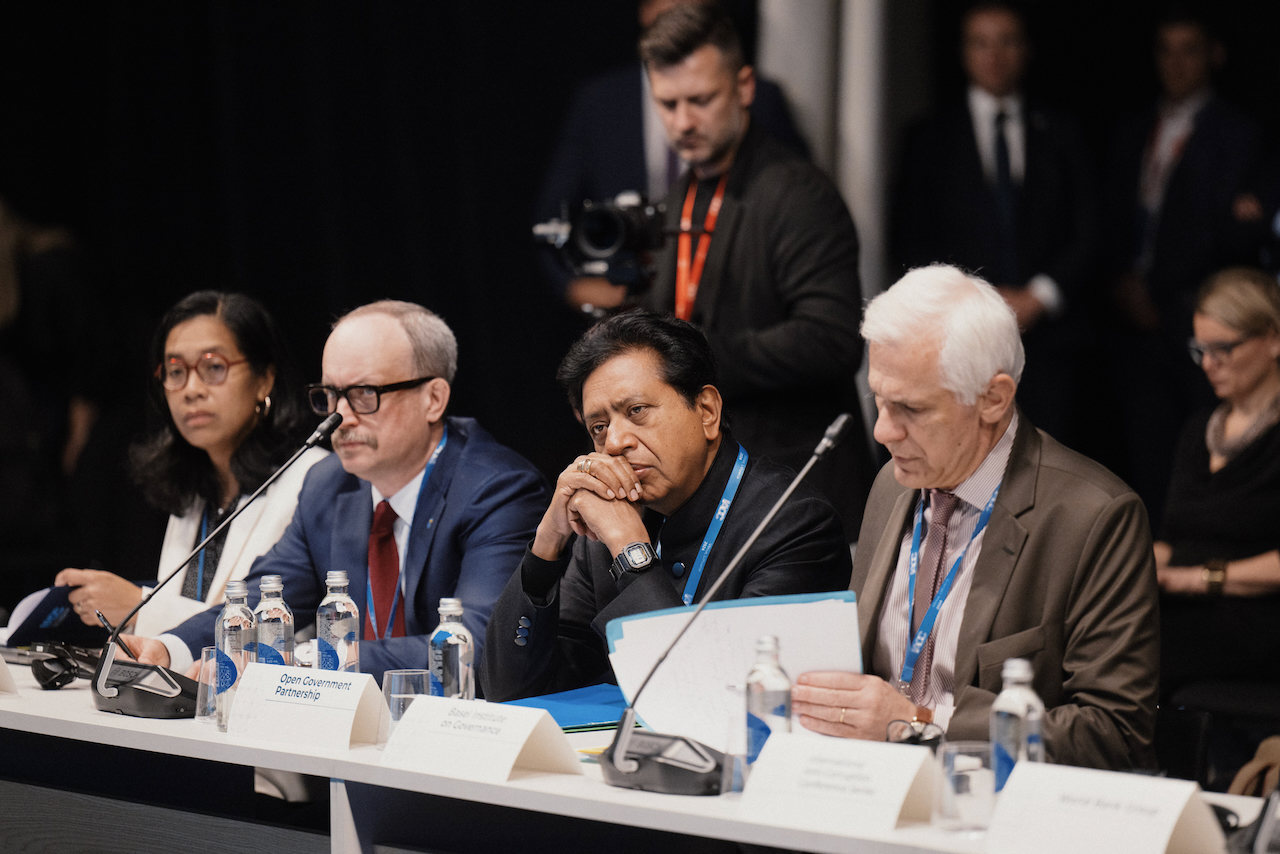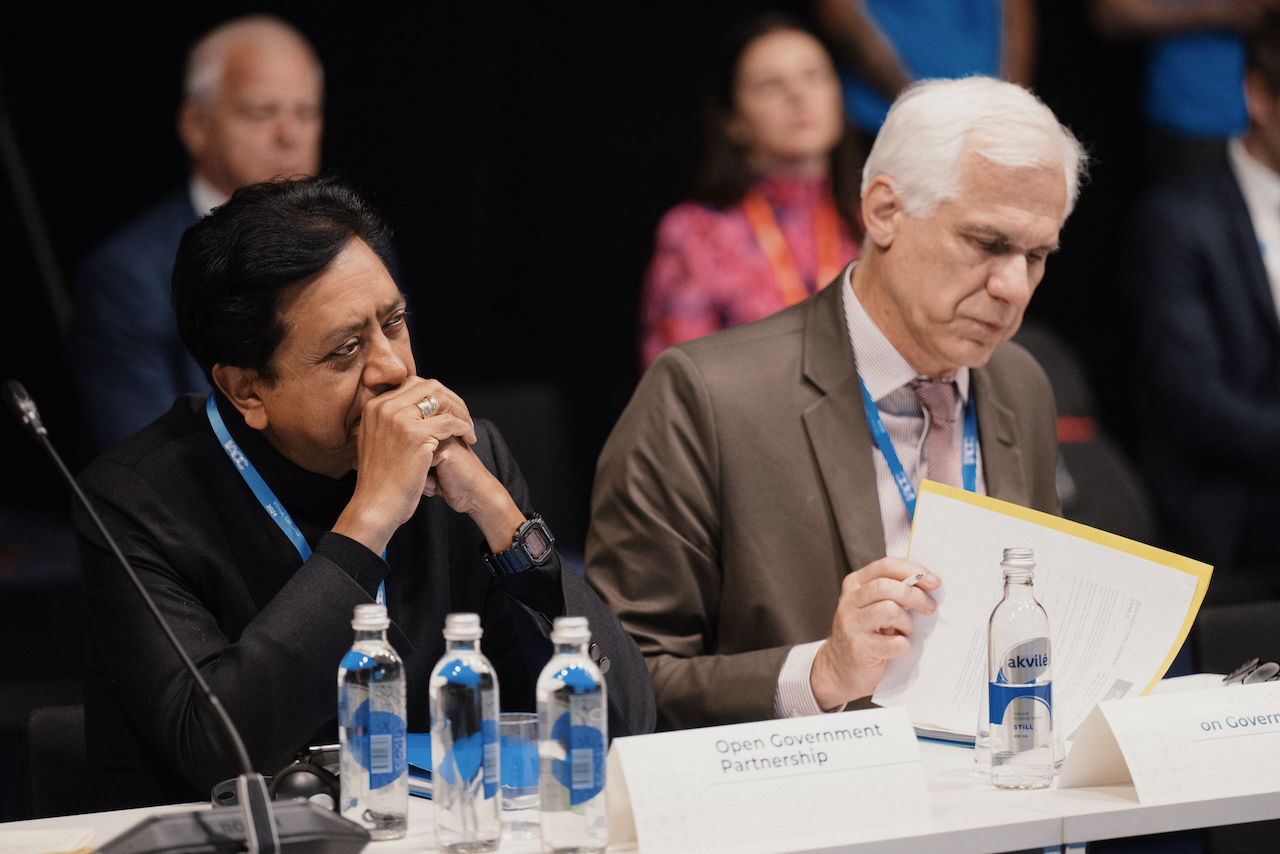Multi-stakeholder Collective Action is a strategic priority, say anti-corruption leaders
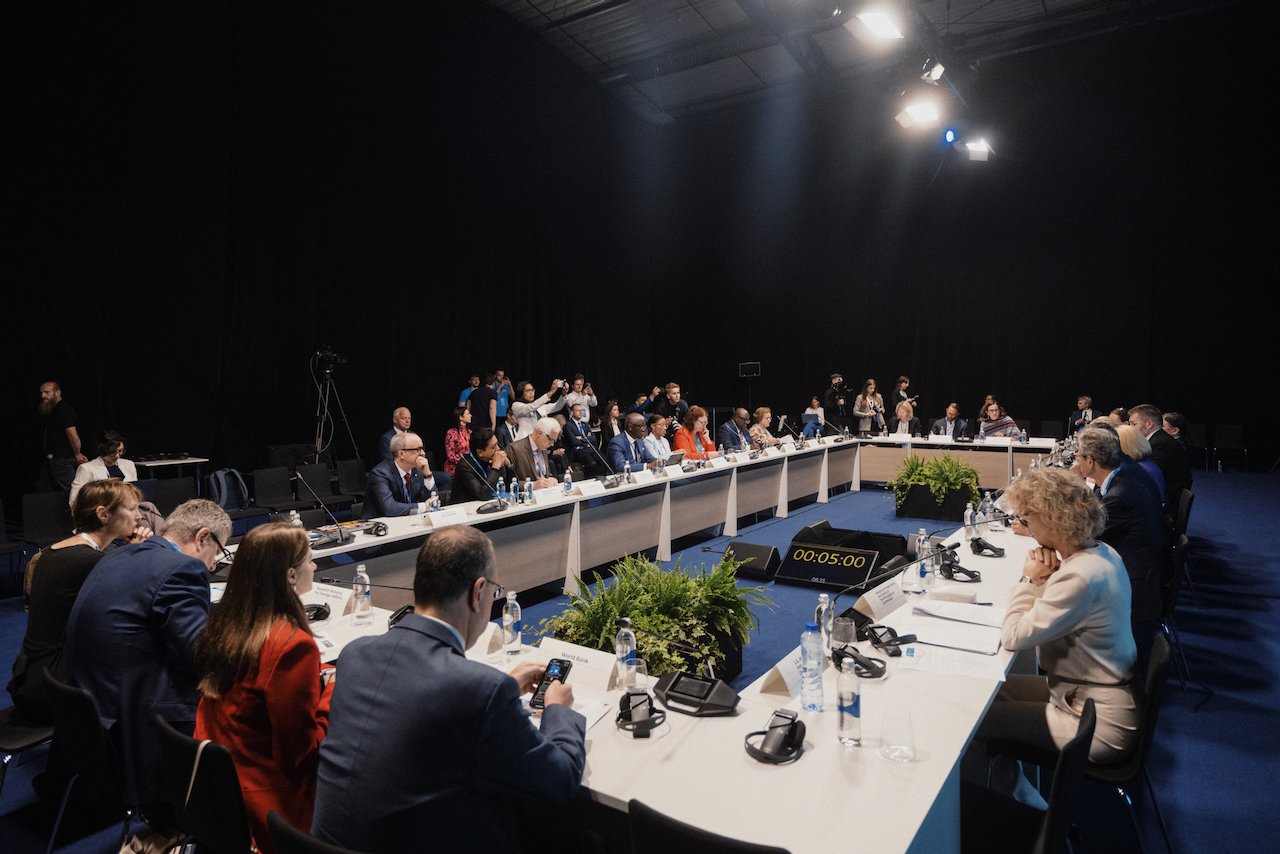
We are delighted that anti-corruption Collective Action with the private sector, government and civil society is included as a strategic priority in the Joint Communiqué of the 21st International Anti-Corruption Conference (IACC) High-Level Segment in Vilnius, Lithuania.
The High-Level Segment of the 21st IACC convened on 19 June 2024 under the theme "Confronting Global Threats: Standing up for Integrity." The meeting brought together high-ranking government officials, leaders of international and regional organisations, civil society organisations and business representatives to address the pervasive issue of corruption that disrupts peace, impedes development and compromises security.
The Basel Institute's Board Member Nicola Bonucci spoke at the meeting, supported by Head of Private Sector Vanessa Hans.
We thank Lithuania and its Special Investigation Service (STT) for the opportunity to participate in the High-Level Segment and for the excellent organisation and hosting of the conference together with Transparency International.
Multi-stakeholder priorities
The Final Communiqué's priority on "Engaging Civil Society, the Media, and the Private Sector" encourages stakeholders to:
"Foster partnerships and sustained cooperation through collective action and encourage the adoption and effective implementation of compliance programs and ethical standards."
This follows growing endorsements of Collective Action tools and approaches in international standards and national anti-corruption strategies. This form of Collective Action – which the Basel Institute has championed for two decades – refers specifically to multi-stakeholder engagement with the private sector to address shared corruption challenges and raise standards of integrity.
It is increasingly accepted around the world that Collective Action offers clear pathways and mechanisms for stakeholders from governments, international organisations, civil society, the media and the private sector to engage in joint anti-corruption and integrity-building efforts.
Reaffirming commitments, refreshing perspectives
The High-Level Segment was a chance for anti-corruption leaders from across the world and different sectors to review recent developments, identify new challenges and set shared priorities and actions for the next two years, as well as to reaffirm a collective commitment to transparency, accountability and integrity.
The meeting emphasised the crucial importance of collaborative efforts between governments, civil society and the private sector in combating corruption and reinforcing the rules-based international order, democratic values and human rights.
Other priorities in the Communiqué include:
- Enhancing Financial Transparency and Integrity
- Addressing Impunity and Weaponization of Corruption
- Countering Strategic Corruption
- Leveraging Technology and Innovation
- Building Capacity and Enhancing Accountability
- Strengthening International Cooperation
- Protecting Civic Space
- Promoting Democratic Resilience and Rules-Based International Order
A particular aspect of the Joint Communiqué that we welcome is its emphasis on effective implementation of anti-corruption measures, something that Nicola Bonucci stressed in his intervention.
"Stronger efforts are needed across the board to implement effective anti-corruption measures that complement enforcement," recognises the Communiqué.
Learn more
- Read the Joint Communiqué.
- Learn more about Collective Action and how to engage.
- See more about the Basel Institute’s presence at the IACC in 2024.

